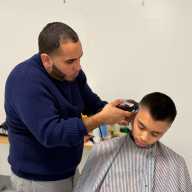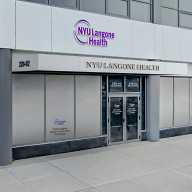Read Related Article #1: Death and life within the ghetto walls
Read Related Article #2: Behind the barbed wire
Read Related Article #4: Survivor Profile: Minia Moszenberg
Read Related Article #5: The will to survive
Read Related Article #6: Survivor Profile: Ellen Alexander
Read Related Article #7: Survivor Profile: Eddie Weinstein
Before the war started, Ruth Turek, born in 1927, was living in a “wholesome household” with her mother, father, older sister and younger sister in Poland. She went to public school, liked seeing family and friends, and loved celebrating the holidays.
Things began to change for her family on September 1, 1939 when the Germans started to march into Poland. She awoke that morning to find her father home rather than at work and was told that they were at war.
“It scared me and confused me because I really didn’t know what war was,” Turek said. “I knew the word. I thought it was one soldier fighting with another.”
Within a month, Poland had been occupied. As restrictions were put in place, Jews were not allowed to go to school, lost jobs, had homes taken away and were given curfews.
“I was very nave,” Turek said. “I just believed everything would (get) better.”
Eventually evacuations began, with the Jews of Poland being sent to Treblinka, where they were gassed as soon as they arrived. Before this began, Turek said that her mother’s family had selected a place in Poland to gather the entire family in hopes of remaining safe. While Turek and her older sister hid under blankets on a truck to go there, her parents and little sister stayed behind. They were sent to Treblinka.
Turek and her sister worked at an ammunition factory there for two years before the workers were evacuated. After three days on a cattle car so crowded that sitting was not possible, they arrived at Auschwitz, where Turek saw a sign that read “work liberates you.”
Upon arrival, they were stripped, shaved, fumigated and had numbers tattooed on their left forearm. They went into the showers, finding real water coming out rather than gas that would kill them.
After being counted every morning, Turek said they were taken to work. She said they would carry bricks and rocks to one location, only to have to move them back a couple of days later.
One of Turek’s experiences at Auschwitz is so unusual that she didn’t initially talk about it, fearing that it would not be believed. She underwent surgery there for an infection in her left knee. Following the surgery, she remained in the hospital for two months.
During her hospital stay, Turek sent messages to her sister to let her know she was okay. When released, Turek was sent to a different barracks, although she did see her sister briefly.
Near the end of 1944, Turek was sent to Bergen-Belsen.
“It was a camp literally to painfully let the rest of the Jewry die,” Turek said.
While there, there were times when Turek could have left to go to a farm, but never did in case they brought her sister. She later found out that her sister had survived a march to Germany, only to die a few days before the end of the war.
Turek was liberated from Bergen-Belsen on April 15, 1945.
Turek met her husband in Bergen-Belsen. The two were married prior to coming to the United States on March 3, 1949. Now living in Little Neck, Turek has two daughters and eight grandchildren.
“It’s something that never heals and I am not trying to forget,” Turek said. “I am still able to enjoy every bit of the good things in my life.”





























